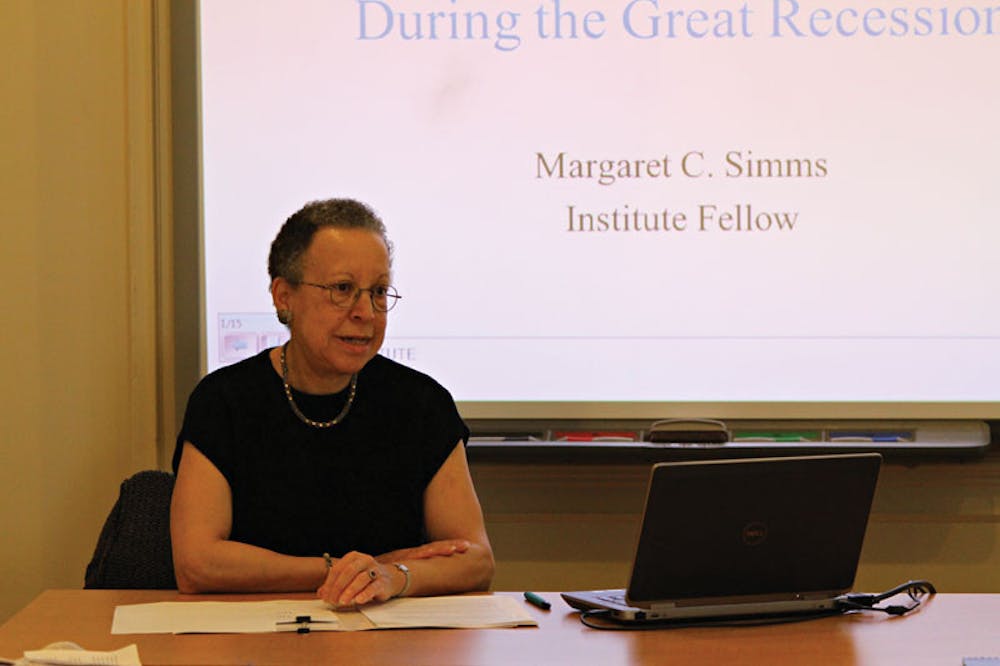The recent recession in the United States has had a noticeably different impact across racial and gender demographics, said Margaret Simms, an economist and fellow at the Urban Institute in Washington D.C., at a lecture yesterday.
Simms used economic data to address the Obama administration’s response to the recession and economic relief efforts for families at her lecture, which was held at the Taubman Center for Public Policy and attended by about 25 people.
Simms said the recession’s differential impact on various demographics highlights “the need for attention to differential policies in order to make everybody financially secure.”
Data from numerous studies show that blacks, especially black women, were disproportionately affected by the recession, Simms said.
One Urban Institute study found that during the recession, black women had the lowest median income when compared to black men,white men and white women. The wealth of the average black household fell by about 50 percent during the recession, as opposed to an about 15 percent decline for white households, according to a study from the Pew Research Center, Simms said.
Lecture attendees expressed surprise at a 2011 Institute for Women’s Policy Research study Simms cited showing blacks were slightly more optimistic than whites about components of their economic futures, like the prospect of finding a good job and financial advancement. One audience member suggested this difference in optimism may be attributable to blacks’ greater propensity to support the Democratic Party, which held the White House at the time the study was conducted. Simms countered that while it may be possible to attribute the difference to political leanings, the findings could also be a result of differing definitions of the factors contributing to economic advancement between blacks and whites, such as what constitutes a good job.
Welfare programs, like the Supplemental Nutrition Assistance Program, and federal stimulus projects funded by the American Recovery and Reinvestment Act helped families recover from the recession, Simms said. But they did not do enough to alleviate disproportionately affected demographic groups and geographic areas, she said, adding that the Obama administration should have done more to curb the adverse effects of the housing foreclosure crisis, which disproportionately affected blacks.
Administration officials took the correct initial steps by infusing the economy with significant federal funding, but “in terms of getting additional funds to keep things moving and to increase the rate of job expansion,” they were blocked two years into the president’s term, Simms said. The administration currently “could pay more attention to those who are being left further behind in this slow expansion” of the economy, she added.
Director of the Taubman Center and Professor of Political Science Marion Orr said he invited Simms to speak at the University due to her nationally recognized expertise on demographic dimensions of economic policy and interest from faculty members and students in Simms’ area of study. “African American women are an important part of American social and economic life,” Orr said, adding that black women deserve society’s attention due to the recession’s disproportionate effect on them.
Jonathan Cox ’13, who attended the lecture, said it is important to be aware of Simms’ area of study. “When these economic programs are being enacted, the effect is supposed to serve all types and all demographics,” he said, adding that it was interesting to see the unintended effects of the policies mentioned in the lecture.
Gabriel Schwartz ’13 said he found the lecture of particular interest because it relates to his senior thesis, adding that he hopes greater awareness of this research will eventually lead to change. “If people see research like this, they are much more likely to get involved,” Schwartz said.

ADVERTISEMENT




